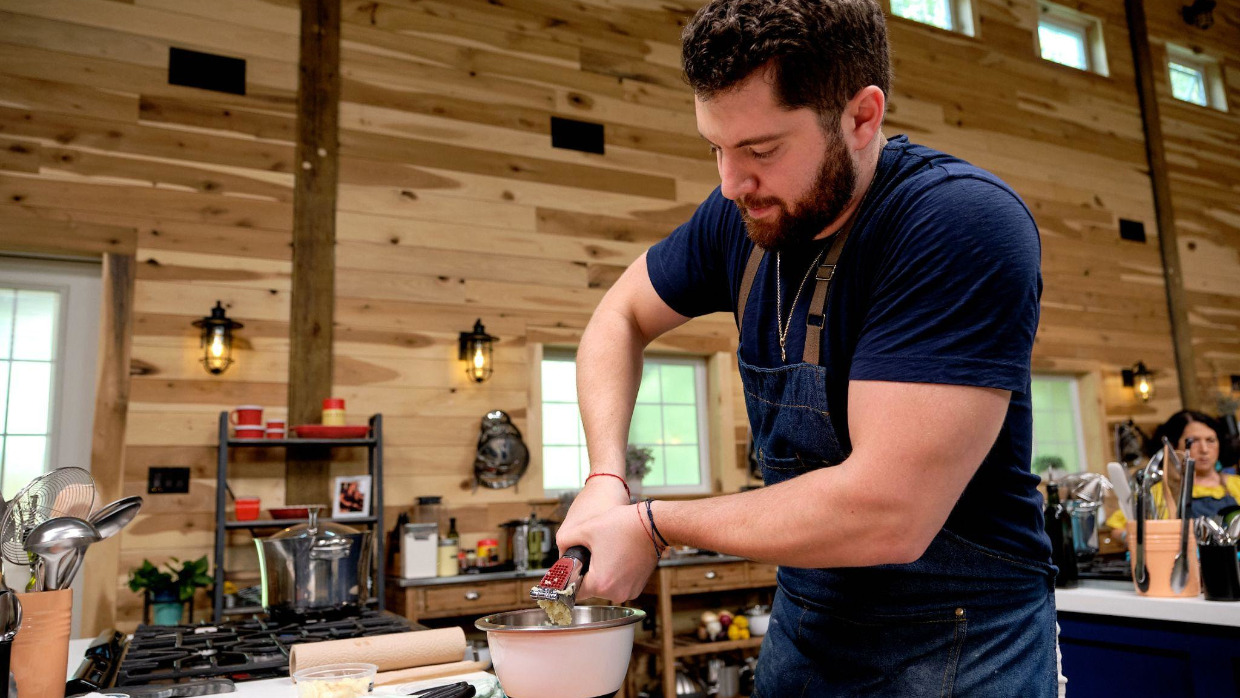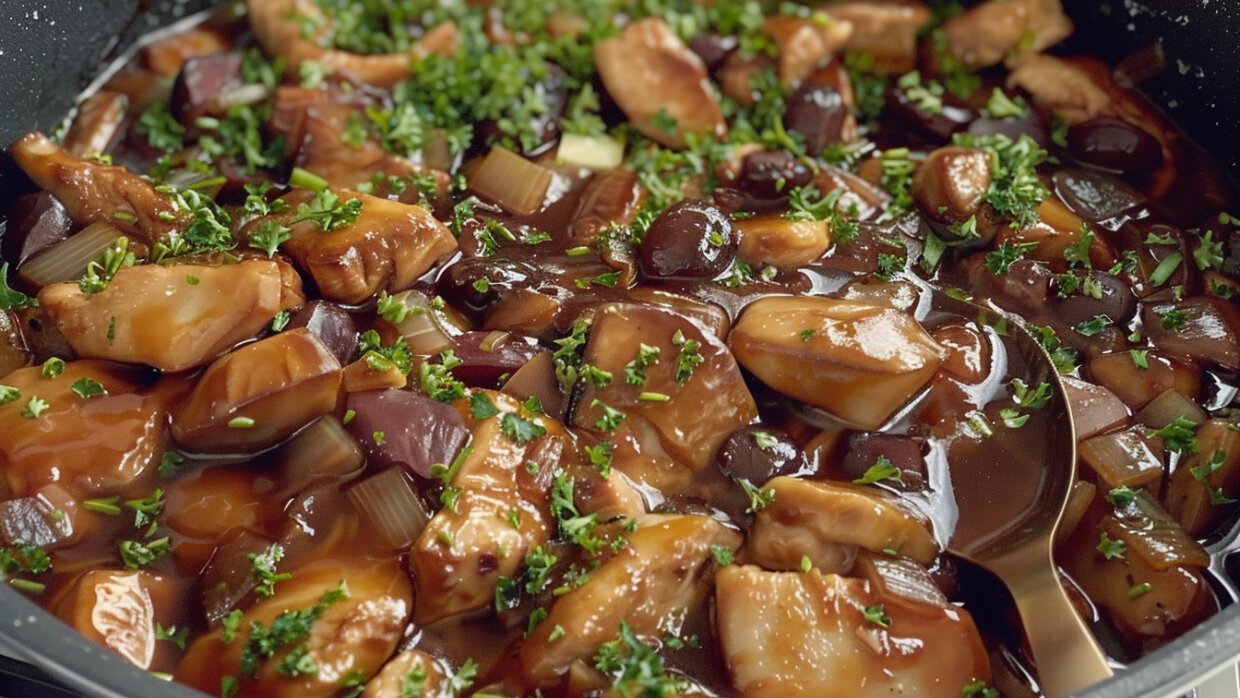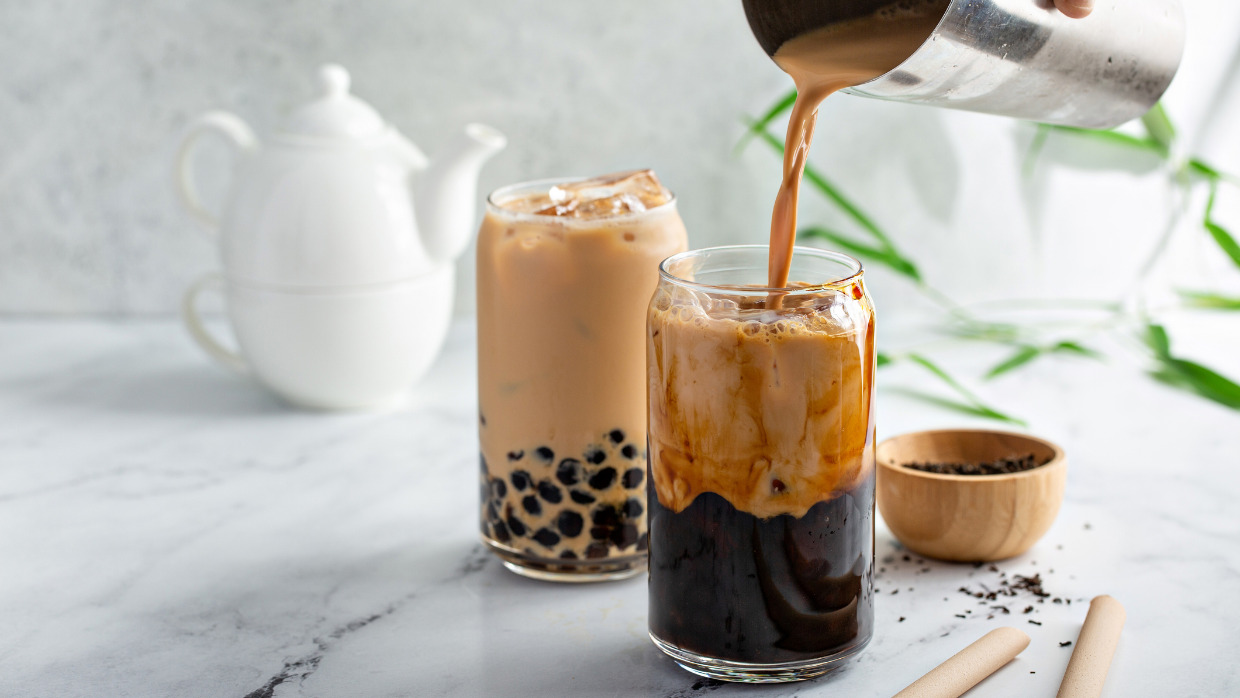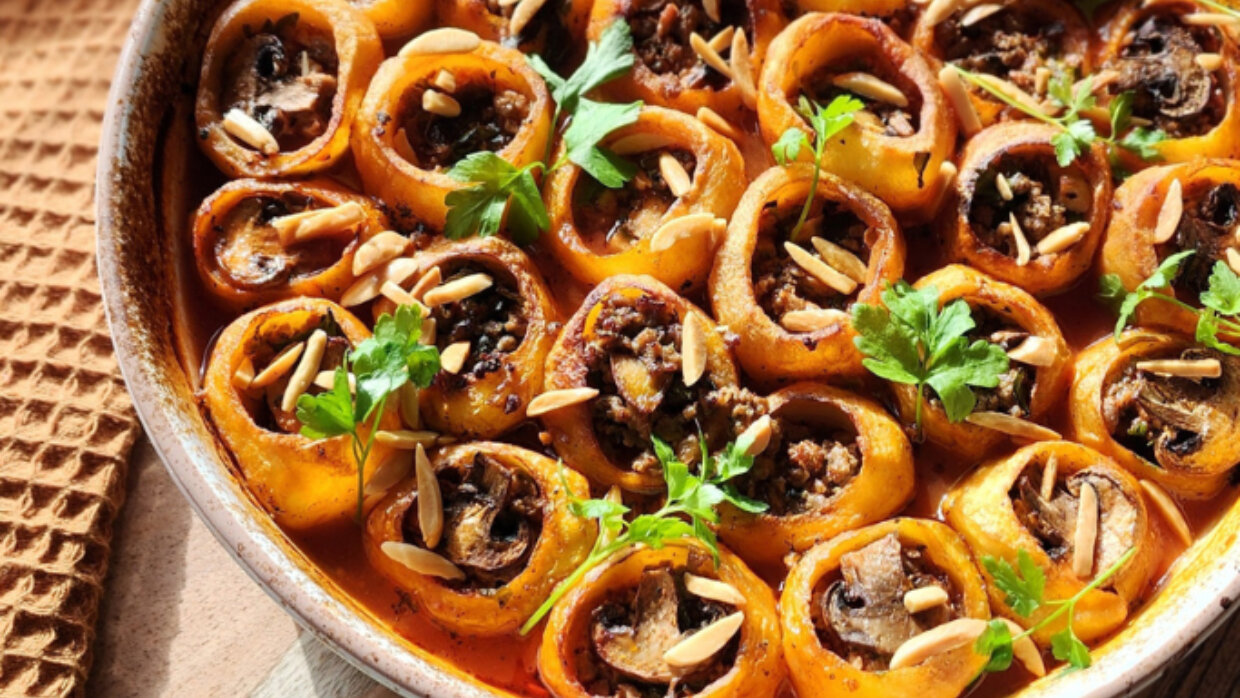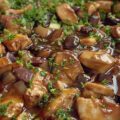July 25, 2023
Throughout the popular PBS series, “The Great American Recipe,” chef/restaurant owner Leah Cohen has loved co-hosting. Whether it's exploring the flavors of contestants' ancestral homelands, the traditional recipes passed down through generations, or the innovative twists they bring to their dishes, every contestant's journey has been a “captivating” tale of identity and heritage.

“One of the aspects I particularly enjoy is the opportunity to get to know the contestants and learn about their diverse backgrounds,” Cohen told Jewlish.com in an exclusive interview. “Each contestant brings their own unique story and cultural heritage to the show, and their food stories become a gateway to understanding their traditions and experiences. Food is deeply intertwined with culture, and through the contestants' culinary creations, I have the privilege of delving into their personal narratives.”
Now in its second season, “The Great American Recipe,” had two Jewish cooks, Brad Mahlof and Abbe Odenwalder, competing on the show.
“It was nice to see two different cooks showcase how diverse Jewish food can be,” Cohen said. “Having these contestants on the show promotes cultural understanding, encourages exploration of new flavors, and celebrates the contributions of Jewish communities to the culinary world.”
Amongst the many dishes Cohen loves is of course, matzo ball soup! “This is one of my favorite things to eat hands down! Both Brad and Abbe made this dish and they did an excellent job. I’m also a sucker for a good, Jewish-style brisket and freshly baked pita bread!”
Jewlish.com also talked with Chefs Mahlof and Odenwalder about the show and Jewish cooking!
Chef Mahlof

Get Brad’s recipe for Cod Cake with Amba Sauce and Israeli Salad here.
Mahlof’s father is from Libya, while his mother’s family, originally from Europe, have been New Yorkers for generations. It’s no wonder his mixed background influences his food.
“There were so many awesome things about being a part of the experience but having had this amazing platform to tell my story and share my heritage was such a blessing,” acknowledged Mahlof, who when he’s not cooking at home, is a real estate developer.
“There are no Jewish people left in Libya and our once thriving community is now remembered only through stories of the past. Hopefully, I am doing my part to memorialize our rich history through sharing my food and recipes. Also being able to compete on the show as a kosher contestant, highlighting that kosher food can be awesome was pretty great too.”
Throughout filming, Mahlof’s biggest challenge was his desire to represent traditional Jewish foods, realizing that they often take many hours to prepare and would be near impossible to complete within the hour time limits of each round.
“I did my best to adapt these recipes to the short cooking times and decided early on, that my focus was less about winning (picking easy fool-proof recipes) and more about authentically representing Jewish food, regardless of the outcome,” he acknowledged.
Growing up, Mahlof remembers “loving the smells” on Fridays as his mom prepared their shabbat meal.
“There’s something spiritual and indescribably special about the way shabbat foods perfume a home on Fridays leading up to shabbat. The irresistible aromas touch the soul and evoke a feeling of nostalgia and welcoming. My mom loves telling people that she started feeding me and my siblings couscous and spicy Libyan stews as early as 6 months old!”
Mahlof visits Israel 1-2 times per year and always comes back home with lots of new culinary inspiration. “In my head, Israel has two main types of cuisine, the first being the shuk (market) food, think falafel, hummus, pita, shawarma, etc. The second is the more ‘elevated’ Tel-Avivian cuisine, ie, small-plate-style foods that showcase the country’s culinary creativity while highlighting the beauty and freshness of their local ingredients.”
While he loves eating it all, Mahlof prefers the shuk style food more. “I could eat chicken schnitzel on challah bread with hummus and matbucha every single day and be as happy as a clam!’ he quipped.
While Libyan Jewish food is not as known as the foods from other Sephardic regions, it does have a reputation of being some of the most delicious, he noted. “Think spicy slow-cooked stews, rich flavors, lots of garlic and of course couscous!”
He continued: “I actually think the low and slow method of cooking is inherently Jewish, because these foods taste better the longer they cook and so are ideal to be prepared for shabbat, where food needs to be cooked prior to shabbat and then kept warm for extended periods of time.”
If you are looking for food inspiration, check out Mahlof’s new blog, cookwithbrad.com and his instagram @cookwithbrad!
Chef Odenwalder

For Odenwalder, the best part of being on the PBS series was becoming friends with the cast!
“Getting to know people from all regions and ethnicities was a lot of fun,” the food blogger enthused. “We will be friends for life! The opportunity to tell our story was very important to me also. Being a first generation American makes me feel special and that story has always been told to my children. Hopefully, the story is coming through in the production because that is just as important to me as the food!”
Ashkenazi Jewish dishes are also often cooked low and slow, which is why Odenwalder, just like Mahlof, was challenged by the time period given. “Though I did experiment before I left home with a brisket made in the instant pot, I thought it was awful, and therefore chose not to make it. Ingredients were not always what I was used to.”
Another cooking challenge for Odenwalder–getting used to gas burners, vs. her electric stove back at home! “The gas burners were quite challenging, as the flame was often blown from the burner when the ac fans went on above us. The oven temp always seemed a bit off from mine, too. Additionally, thinking of recipes to meet the challenges was not always easy!”

Get Abbey’s recipes for Sweet Noodle Kugel with Spinach Salad with Za’atar, Sumac, and Dates
Throughout the series, Odenwalder was often asked to adapt recipes to fit the show, such as for her blintzes recipe.
“I make a treasured blintz casserole recipe but was told that I needed to roll them for the production. Needless to say it didn't go as planned and was a totally different recipe from what I make. Bummer!”
Like Mahlof, Odenwalder feels a spiritual connection to the food she makes.
“Serving Jewish dishes is a way of continuing tradition and remembering those who came before us. Especially those who didn't survive to pass their recipes on. Whenever I bake or cook any Jewish dish, I always remind myself that I am grateful to be here today, standing in my own kitchen, when so many before us could not. I always want to do any recipe justice, but cooking Jewish dishes to me is always a bit spiritual.”
When her grandma died, Odenwalder inherited all of her Jewish cookbooks. “She had many from Haddasah, ORT.org, The Settlement Cookbook, etc. I love tradition, and cooking dishes for any Jewish holiday is very important to me.”
Sadly, Odenwalder doesn’t have her family’s specific recipes.
“Though I never really ate either of my grandmother's recipes, I feel that they would be thrilled to know that I loved cooking them. My father's mother died of leukemia when I was 10 and he remarried a woman 20 years younger than him who had just lost her husband. It was considered scandalous at the time and I am convinced he married her because she could cook! We grew to love her and her cooking, though she never taught me anything. She was famous for her nut cake, rugelach, German pancakes, spritz cookies and her eggless potato kugel that is to die for. Almost like a custard, but it takes three hours in the oven!”
Odenwalder is quite savvy in the kitchen!
“My brisket is a fave. Growing up, my mother's brisket never turned out the same way twice. The one I make is delicious every time! My kids always asked for Ilse's nut cake as one of their birthday cakes. (I have twins.) My cheese blintz casserole recipe is a classic that everyone loves. Macaroons are a fave and I make them countless ways. Chocolate Babka Buns are superb! Everything But the Bagel scrambled eggs. Earl Grey Mandel Bread. Rugelach Babka Cake. Sweet and Sour Cabbage with Meatballs. Honey Cake with Whiskey and Pecans. Chopped Liver. Bialys. I have a lot of dishes I love!”
“Great American Recipe” airs on PBS stations nationwide on Monday nights at 9PM (check local listings.)
Photos Courtesy of PBS




